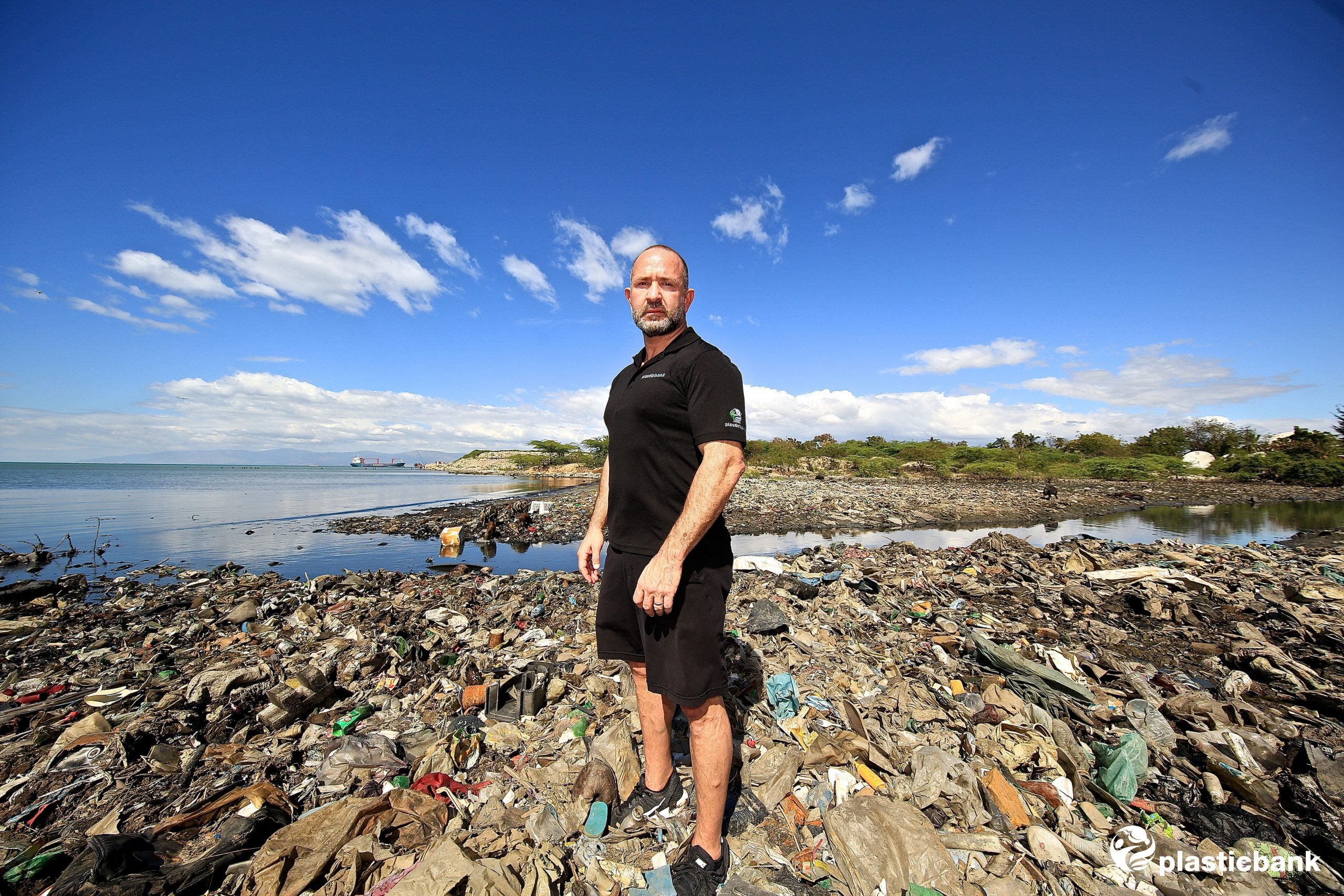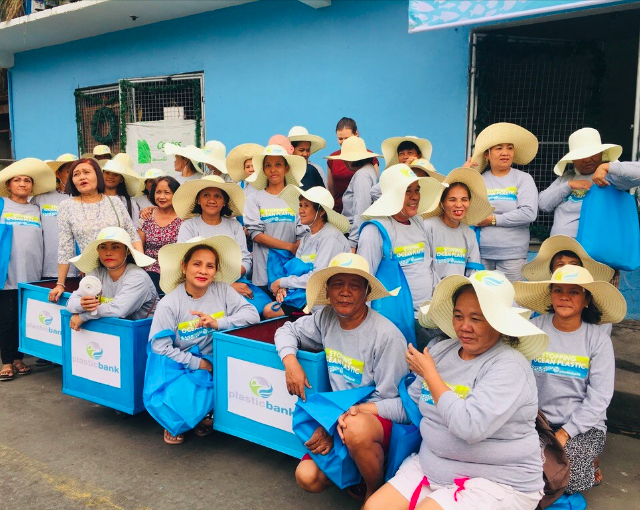
What is Plastic Bank?
Plastic Bank is a social enterprise that builds ethical recycling ecosystems in vulnerable coastal communities and reprocesses the materials for reintroduction into the global manufacturing supply chain. Our mission is to eliminate poverty as a means of addressing the global ocean plastic crisis. By monetizing plastic waste, we act as a series of “bank branches” for the less fortunate in vulnerable communities. We use our Alchemy™ blockchain app to ensure secure, transparent, and traceable transactions that allow anyone to become a recycling entrepreneur – sort of like the Uber of recycling.
How do you collect plastic bottles and what do you do once you collect them?
We work with communities across Haiti, the Philippines, Indonesia, Brazil, and Egypt. In exchange for their collected plastic, our collectors receive bonuses which can be used to provide basic family necessities like groceries, cooking fuel, school tuition, cell phone minutes. They can also redeem these for cash.
At Plastic Banks collection branches, collected plastic is inspected for quality and weighed. Our Alchemy™ blockchain platform tracks the volume of waste before being sent to our local processors as part of a circular economy. Where possible, the collected material is reused locally to cut down on shipping. Otherwise, the material is baled or shredded and readied for export, where companies can purchase it as Social Plastic® for reintroduction into their manufacturing supply chain.

What hurdles have you faced from the plastic lobby while working in different countries?
We have encountered large chemical companies who have spoken about the need for change, however their conversations have not translated into action. We are focused on creating change, on becoming the solution that our planet needs.
Could you list a few initiatives Plastic Bank has done to generate awareness?
Plastic Bank just announced that we’ve stopped our one billionth bottle of ocean plastic. That’s equivalent to over 20 million kilograms of plastic that would have otherwise found its way into the world’s oceans. Reaching this incredible milestone has been possible through the help of our global partners including SC Johnson, Henkel, Procter & Gamble, Carton Pack and Advansa. They have helped lead the regenerative plastics economy by championing the reintegration of Social Plastic® into the supply chain through recognizable household brands like Windex®, Mr. Muscle® and Nature Box®.
We also have Plastic Bank’s Community Partnership Programs, which include engaging institutions and faith-based communities by providing the tools and resources to become stewards of creation by lifting people around the world out of poverty. These programs are available for any local communities who are passionate about building bridges and creating a better world for future generations. Notably, our faith-based programming has garnered the support of the Vatican.
How can individuals help Plastic Bank?
The biggest thing individuals can do to assist Plastic Bank’s mission is use their power as consumers to affect positive change. Every time you enter a store, ask an employee to point out the products that are made from recycled content, or that most contribute to the circular economy and sustainability for our planet. By asking questions like these, you are encouraging retailers to sell more items that align with your values.
Continuing to buy things that are single use or excessively packaged means that those products will continue to be made. With every purchase you make, you vote with your dollars in favour of that product – including how it is manufactured and how it gets thrown away. It is important to vote with purpose, because the retailer listens to the consumer’s demand, and the big manufacturers listen to the retailer.
Can you list five things that all of us should do to help the environment?
- Refuse single-use materials and educate yourself about your own habits as a consumer and how your choices impact the planet.
- Use your power as a consumer and create the space for brands and retailers to change themselves. Demand through any social means possible that companies use non virgin materials.
- Be compassionate to other life and our fellow species on the planet. Be sympathetic to your fellow humans, especially those who are less fortunate. To eliminate ocean plastic, we must first eliminate poverty.
- Reuse everything that you can, reduce the demand for new plastic to be created.
- Be aware and set a good example for future generations through your own behaviour.
Do you think we will ever have a plastic-free future?
The plastic isn’t the problem: it’s our attitude towards it. Every piece of plastic that has been produced is still on the planet in some form or another, to the point where there is currently 10 trillion kilograms of it on Earth. Yet, we continue to produce more virgin plastic, which is ludicrous. The conversation shouldn’t be about creating a plastic-free future. It should be about increasing the value of recycled plastic so that it’s viewed not as waste, but as a resource with value in circular economies.
Where can people learn more about the organization?
For more information, visit us online at https://plasticbank.com/
This Story is edited by Yugbodh, Onside Media, Toronto, Canada. If you have stories to share kindly email: – info@theonside.com





